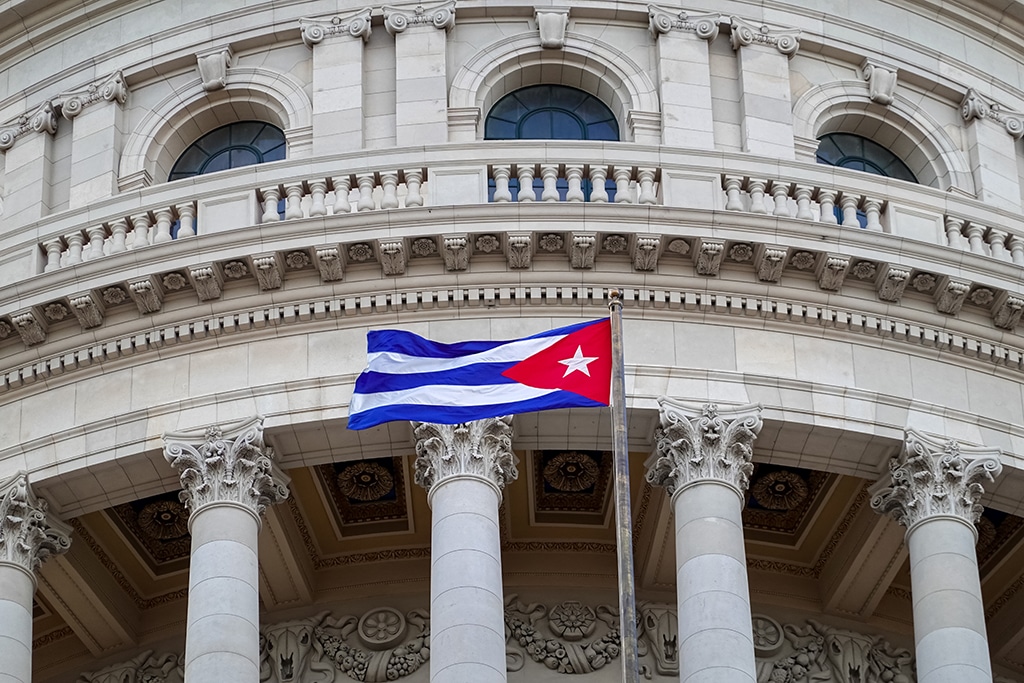
Crypto fanatic, writer and researcher. Thinks that Blockchain is second to a digital camera on the list of greatest inventions.
The stated license will be available to individuals or legal persons, as well as organizations, both Cuban and foreign.

The Central Bank of Cuba (Banco Central de Cuba, BCC) has announced that it will be issuing licenses for Bitcoin and virtual asset providers (VASPS) in the country.
According to an Official Gazette published on Tuesday, which includes a Central Bank of Cuba resolution, any entity that wishes to provide virtual-asset-related services must first acquire a license from the Central Bank of Cuba.
The stated license will be available to individuals or legal persons, as well as organizations, both Cuban and foreign. The resolution in the official gazette added that, given the experimental and unique nature of this type of activity, “the authorized permits will be valid for one year and may be extended for a second year.”
The document also warns that firms that do not operate under this license when they are required to do so will face penalties per the country’s existing banking and financial rules. The resolution further states that this decision will become effective 20 days after it is published, on May 16.
In addition, providers will not be able to stop operations without prior approval from the BCC, and they will be required to keep accounting records of their operations under the Ministry of Finance and Prices’ standards, which are based on the approved Financial Reporting Standards of Cuba.
“The Central Bank of Cuba, when considering the license request, evaluates the legality, opportunity, and socioeconomic interest of the initiative, the characteristics of the project, the responsibility of the applicants, and their experience in the activity. “Virtual asset service provider licenses are approved for one year, extendable for a second year, given the experimental and novel nature of this type of activity,” the Gazette said.
According to the resolution, the providers will be able to work with virtual assets that have been approved by the BCC. The Central Bank of Cuba clarified that “virtual assets” are those that “do not include digital representations of fiat currency, securities, and other financial assets widely used in traditional banking and financial systems, which are regulated by other provisions of the Central Bank of Cuba.”
The current resolution, however, did not specify how the Cuban government will levy taxes on the virtual asset activity, stipulating that the BCC will provide or deny the requested license “in a term that in its totality does not exceed ninety working days from the date of receipt of the required documentation”. To issue a license, the BCC will first consult with a Crypto Assets Group.
The Central Bank of Cuba published a resolution in August 2021 that established guidelines to regulate the use of virtual assets in commercial transactions and licensing of service providers in that sector. This resolution allowed the bank to grant licenses to “service providers of virtual assets for transactions related to financial, exchange, collection, or payment activities in and from the national territory,” the BCC recalled on Thursday.
The BCC has, however, warned government agencies to refrain from using assets in transactions except in cases authorized by it.
Disclaimer: Coinspeaker is committed to providing unbiased and transparent reporting. This article aims to deliver accurate and timely information but should not be taken as financial or investment advice. Since market conditions can change rapidly, we encourage you to verify information on your own and consult with a professional before making any decisions based on this content.

Crypto fanatic, writer and researcher. Thinks that Blockchain is second to a digital camera on the list of greatest inventions.




